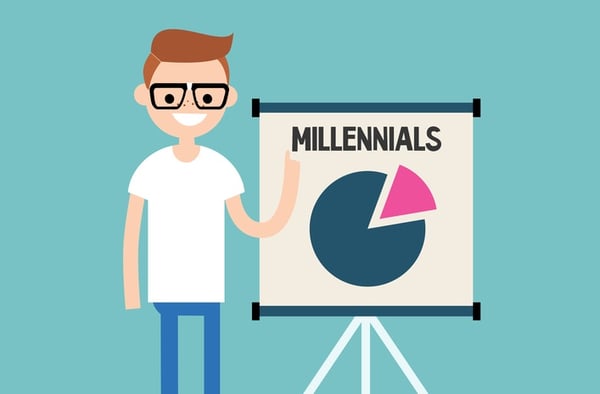Don't settle for an underemployed and disengaged Millennial workforce. Here are four ways to transform Millennials into high performers.

Most managers who see an empty chair at a Millennials' desk or see a Millennial sinking a lot of time into social media while on the job would chalk his or her behavior up to laziness or lack of focus. However, in my seven-year experience speaking and consulting with hundreds of organizations on this topic, I have discovered the behavior often occurs because the Millennial is underemployed.
Underemployment is similar to when schoolteachers consider a student a disruption in the classroom because he or she finishes the day's work or test before anyone else and starts talking to peers out of boredom.
Millennials leverage technology and collaborative digital tools to streamline and systemize their work in order to work smarter. As long as managers are still managing the input (time) of their Millennial employees rather than the output (results), they may underestimate just how much their Millennial employees can contribute. Do not confuse working smart with laziness.
4 Ways to Move Millennials from Underemployed to High Performers
1. Provide examples of satisfactory work
A clear and relevant example of excellent work is fundamental in aiding employees to achieve high performance. Sixty-one percent of Millennials say they need "specific directions from their boss" to do their best work.
Leaders must cast vision--a vision of the "why" behind the work and a vision for the quality of the work. People tend to meet the expectations of those who lead them. Raise your Millennial expectations, and you will raise the lid on the potential of your Millennial employees.
2. Make additional projects available
It's probably an understatement to say that today's organizational leaders have too much on their plates. Yet, today's underemployed Millennial employees would pounce on the scraps from that plate. In fact, one in four Millennials is "asking for a chance" to show their leadership skills. Whether they vocalize it or not, they want to prove that they have what it takes.
Make it a priority to check in with your Millennial employees on a daily or weekly basis to ensure they have enough to work on. Then communicate the other projects that are available should they want to elevate their impact on the organization.
3. Create a transparent and cross-collaborative work culture
Seventy-four percent of Millennials prefer to collaborate in small groups, and 38 percent of Millennials feel that outdated collaboration processes hinder their companies' innovation. A transparent culture creates trust and enables Millennial employees to align their unique passions and strengths with company priorities and initiatives.
Transparency creates the necessary visibility and accessibility an employee needs for action. The more empowered a Millennial employee feels to collaborate across teams, the greater the potential for innovation and stronger team outputs.
4. Support personal and professional development
Fifty percent of Millennials believe their organizations could do more to develop future leaders. When Millennials' appetite for development isn't satisfied, they will feed the need outside the organization. This is why Millennials are notorious for having "side hustle" or passion projects outside of their full-time jobs.
Leaders should encourage development, and where possible, help Millennials identify areas where they can apply their "side hustles" to their jobs. For example, if a Millennial enjoys podcasting, perhaps he or she could launch a company podcast or become a contributor to an existing one.
Stop making excuses for your Millennials' disengagement at work. Do not settle for an underemployed Millennial workforce. Instead, raise the bar and see how they respond.
As a Millennial and Generation Z keynote speaker and trainer, I help companies lead, engage, and sell to the emerging generations. If you'd like help solving tough generational challenges inside your organization, click here.





